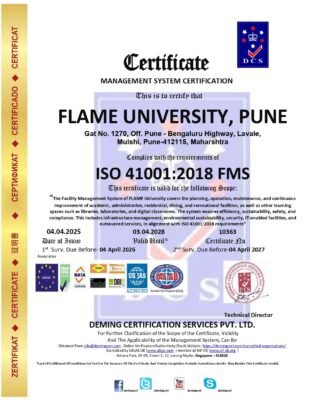ISO 42001 Facility Management System
ISO 42001 is an international standard developed by ISO for establishing, implementing, maintaining, and improving an Artificial Intelligence Management System (AIMS). It focuses on the responsible management of AI systems throughout their lifecycle, covering leadership, planning, support, operation, performance evaluation, and continual improvement of AI management within organizations.
There is also another context where ISO 42001 is referenced as a Facility Management System (FMS) standard, providing a framework for organizations to manage and optimize their facilities, infrastructure, and support services effectively, ensuring safety, sustainability, and cost-efficiency. This version aligns with modern ISO management system structures and focuses on improving facility operations, safety, compliance, and employee well-being.
Could you please confirm which aspect of ISO 42001 you are interested in—AI management systems or facility management systems? This will help provide a more precise and detailed explanation.
What are the core clauses and requirements of ISO 42001 FMS
The core clauses and requirements of ISO 42001 Facility Management System (FMS) align with the structure of ISO management system standards and focus on responsible management throughout the lifecycle of AI systems. The key clauses of ISO 42001 are:
Clause 1 – Scope: Defines the applicability of ISO 42001 to organizations managing AI systems across various industries.
Clause 2 – Normative References: Lists documents and frameworks referenced for implementation guidance.
Clause 3 – Terms and Definitions: Provides standardized key terms for consistent understanding of the standard.
Clause 4 – Context of the Organization: Requires identification of internal and external factors impacting AI management, including interested parties’ expectations.
Clause 5 – Leadership and Commitment: Stipulates top management’s role in demonstrating leadership, establishing AI policies, and assigning responsibilities.
Clause 6 – Planning: Involves identifying and assessing AI-related risks and opportunities, then developing plans to address and mitigate them.
Clause 7 – Support: Requires provision of resources, competent personnel, awareness, and communication for effective AI management.
Clause 8 – Operation: Focuses on managing the AI system lifecycle including design, development, deployment, and maintenance to ensure secure, ethical, and compliant AI usage.
Clause 9 – Performance Evaluation: Outlines requirements for monitoring, auditing, and measuring AI system performance with corrective actions.
Clause 10 – Improvement: Emphasizes continual improvement of AI management systems and handling nonconformities effectively.
Additionally, ISO 42001 includes annexes detailing AI-specific controls such as data quality, bias mitigation, human oversight, incident response, and sector-specific guidelines that support the core clauses.
This comprehensive framework ensures organizations responsibly manage AI with attention to risk, ethics, security, transparency, and compliance throughout the AI lifecycle.
Evidence auditors look for during ISO 42001 certification
During an ISO 42001 certification audit, auditors look for specific evidence to verify that an organization’s Artificial Intelligence Management System (AIMS) complies with the standard’s requirements. The types of evidence auditors examine include:
-
Documented Policies and Procedures: Auditors review AI governance policies, AI risk management procedures, AI ethics guidelines, data governance documents, and AI development and deployment workflows to ensure alignment with ISO 42001 clauses.
-
Records and Logs: Evidence such as risk assessment logs, incident response and resolution records, audit logs, and continuous monitoring data must be available to show real-world application and control effectiveness.
-
Interviews and Competence Verification: Auditors interview personnel including AI engineers, compliance teams, product leads, and management to confirm understanding of AI roles, responsibilities, and compliance measures. Competency of staff in AI management is assessed.
-
Observations: Auditors observe AI system operations and management practices to ensure they comply with documented procedures and controls, including ethical use and security controls.
-
Performance Monitoring and Evaluation: Proof of ongoing measurement, analysis, and evaluation of AI system performance is required. This includes internal audits, corrective actions, and continual improvement activities.
-
Technical and System Evidence: Technical controls such as automated AI testing results, data quality controls, bias mitigation practices, and security measures are verified through system-generated reports or logs.
-
Compliance and Risk Management: Demonstrations of identified AI-related risks, risk treatment plans, and management reviews ensuring AI risk mitigation are consistent with ISO 42001 requirements.
-
Audit Trail and Documentation Management: Proper documentation control and retention of evidence following the standard’s requirements, showing a structured and accessible record of AI management activities.
Overall, auditors seek structure, clarity, and proof of active management of AI systems rather than just written policies, verifying that regulatory, ethical, and operational controls are effectively implemented and maintained.


Mukesh Singh –
Thank You!